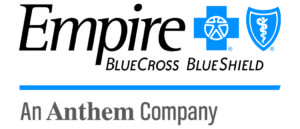The Patient Who Made Me an Activist
by Hemant Sindhu, MD, President/CIR
My patient had been admitted with a clinical picture consistent with colon cancer, and he needed to be worked up to confirm my suspected diagnosis. He questioned the necessity of the procedures recommended and asked if they could be delayed. I spoke to him at length and engaged his family in the conversation as well. I urged him to consider an immediate work-up given his tenuous condition.
The next morning, I was surprised to find him missing from my census. He’d checked himself out of the hospital the evening before, following a threatening phone call from his boss warning him that he would be fired if he didn’t show up for work the next day. With a family relying on his income and no sick days afforded to him by his employer, the patient couldn’t spare the time off from work to treat his illness. His next visit to the hospital was eight months later when he arrived on a stretcher via ambulance in critical condition. It was apparent that the cancer had progressed past the point of saving; he soon died.
I felt dejected. I blamed myself for letting him down and couldn’t help feeling that if only I’d been able to convince him to stay, if only I’d been more aggressive in my advocacy for early intervention treatment, if only I’d been able to get him to listen to me. If only, if only.
I later heard about a protest by employees of the Golden Farms Grocery Store near my hospital – the employees were paid low wages and had no paid sick days, and one worker had been diagnosed with cancer but was unable to take the time off of work to treat it.
He wasn’t my patient, but it was a painfully familiar story, and I couldn’t shake it.
This is how I first became involved in CIR 3 years ago, during my residency. I joined other CIR members and citywide organizations at rallies on the steps of City Hall. We testified before the New York City Council and at press conferences about the need for all workers to be afforded paid sick days, and I passed around a petition at Golden Farms for better treatment of the employees there.
By April of 2014, one year before I took office as CIR president, we’d won that battle for paid sick days legislation in New York, Massachusetts, Oakland, Newark, and a number of other cities around the country. We had succeeded! On behalf of all NYC employees, we won the fight to allow hard working individuals to earn time to care for themselves or their loved ones during times of illness. But there’s still so much work to be done, and I’m looking forward to leading the charge in my new position as president.
As physicians and as union members we are in a unique position to see and understand these issues – and to do something about them. Many CIR members work in safety-net hospitals, with patients who are disproportionately affected by poverty and severe working conditions. We all have stories of similar cases to that of my patient with colon cancer.
Poverty is a healthcare issue. The Fight for $15 – the campaign raging around the country to raise minimum wages to livable levels – is a healthcare issue. During residency, considering the hours we work, we’re often paid at minimum wage levels, so most of us can identify with the anxiety of having to make hard choices with our budgets. But we know that the end of our training will come, and with it better salaries that will allow us to live more comfortably, to pay off our loans, to take care of ourselves and to support our families; there’s a light at the end of the tunnel.
For too many of our patients however, there is no light at the end of the tunnel. We need to do something about that. I don’t want to see another patient who can’t afford to treat an illness or take preventative care because they barely make enough to cover their rent and food.
It’s an ongoing battle, but it’s one I’m looking forward to continuing in the coming year as CIR president, and beyond.





